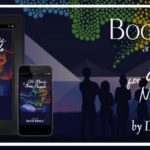I’m happy to say that my new novel Old Music for New People comes out early next week (click here to go to its main landing page). As anyone who loves teens knows, stories about young people coming of age are stories about all of us. Without doubt, my intention with this novel was to write about family, love, and the problem everyone has trying to figure out who they are in this nutso world. Old Music for New People takes place at a time well before the covid pandemic ever hit the world. Hopefully it will be a balm to readers in this time of great uncertainty. Below you will find text from a letter my publisher’s staff and I prepared to go out to editors and reviewers everywhere. I think it’s a great introduction as well for potential readers.
Dear Editors, Reviewers, (and Readers),
A few years ago, one of the younger generation in our admittedly hyper-progressive extended community declared that they were considering a gender transition. Sadly, no matter how well-meaning and supportive the rest of us wanted to be, we wound up responding somewhat incompetently in how we handled this new knowledge. It became painfully obvious to me in our collective ineptness that gender transition moments are actually huge tests of love and insight and family intelligence.
In the midst of all that turmoil, a sentence came to me one morning as I walked up to my 3rd floor study. I sat down and typed as quickly as possible. The voice for that sentence belonged to 15-year-old Ivy Scattergood who wouldn’t let me out of earshot for the two years it took to finish writing her story — Old Music for New People.
Early on I worried about “getting away” with writing a story in the voice of a 15-year-old girl. Ivy was the narrator, but it wasn’t just her story. It was also her cousin Rita’s story, and her brothers’ — Delmore and Zaxy — as well as Bailey Cooper’s and the older generation of Scattergood adults’. So many questions had popped up for all of those people: What does it mean to be a girl? What is going on with teenagers, pushing so hard to answer the question of who they want to become? What does it mean to be a boy? Are the rules society seems to set for each of us reasonable? I stopped worrying about Ivy’s voice when I understood how important those questions are and that they are not owned by anyone.
This novel is not your standard coming-of-age story. Modern Dionysian teenage shenanigans are limited in this book. There’s no bad boy (exactly) at the edge of center stage. I haven’t really created angsty bullies, or even a cynical jerk (exactly). You can also forget a stereotype teen romance (although there is romance).
I wrote Old Music for New People as an antidote to the dark, dystopian, somewhat depressing stories we often encounter in fiction about teens these days. The Scattergood’s are a blended, mixed race family with old Philadelphia area Quaker roots. There are lots of plot angles about baseball, cooking, nature, racial identity, the cosmos, and the magic of music.
Old Music for New People takes place during the summer of 2013, a relatively innocent time for the gender transition movement. Here in 2021 things are much more sophisticated and public. There’s a huge, dynamic national conversation going on right now about gender identity. Old Music for New People doesn’t resolve any of the issues people are discussing, but it certainly adds to the discussion and attempts to put a lot of the points of view people have into a positive context.
Regards from Philadelphia,
David


Congratulations, David! The book’s beautiful. Couldn’t be happier for you.
Thanks so much, Gary. Couldn’t have done it without your support…